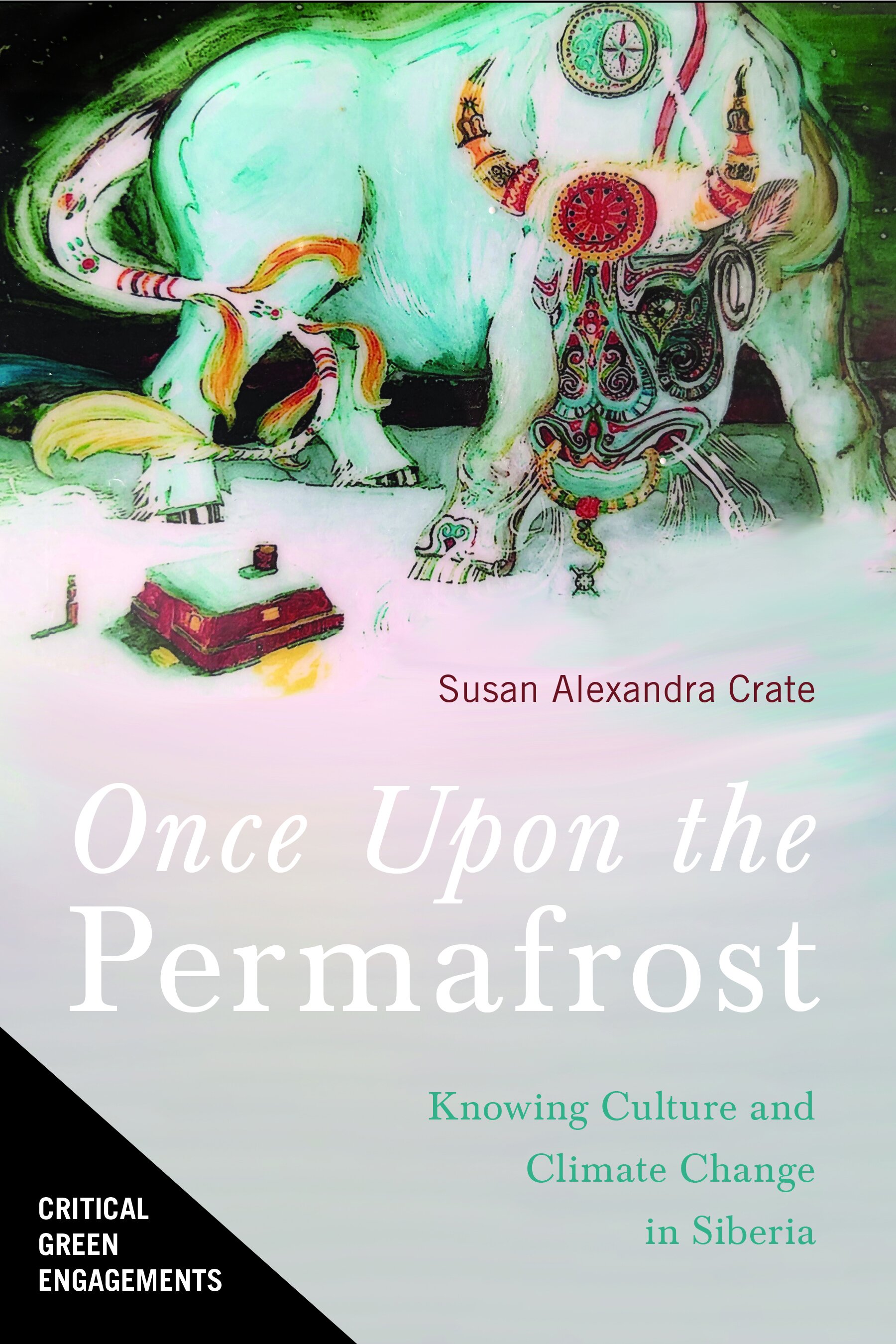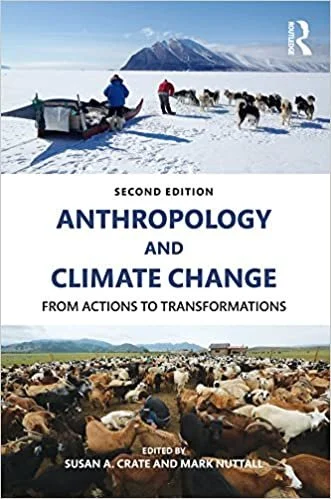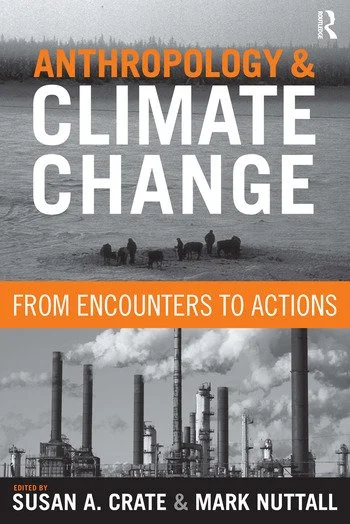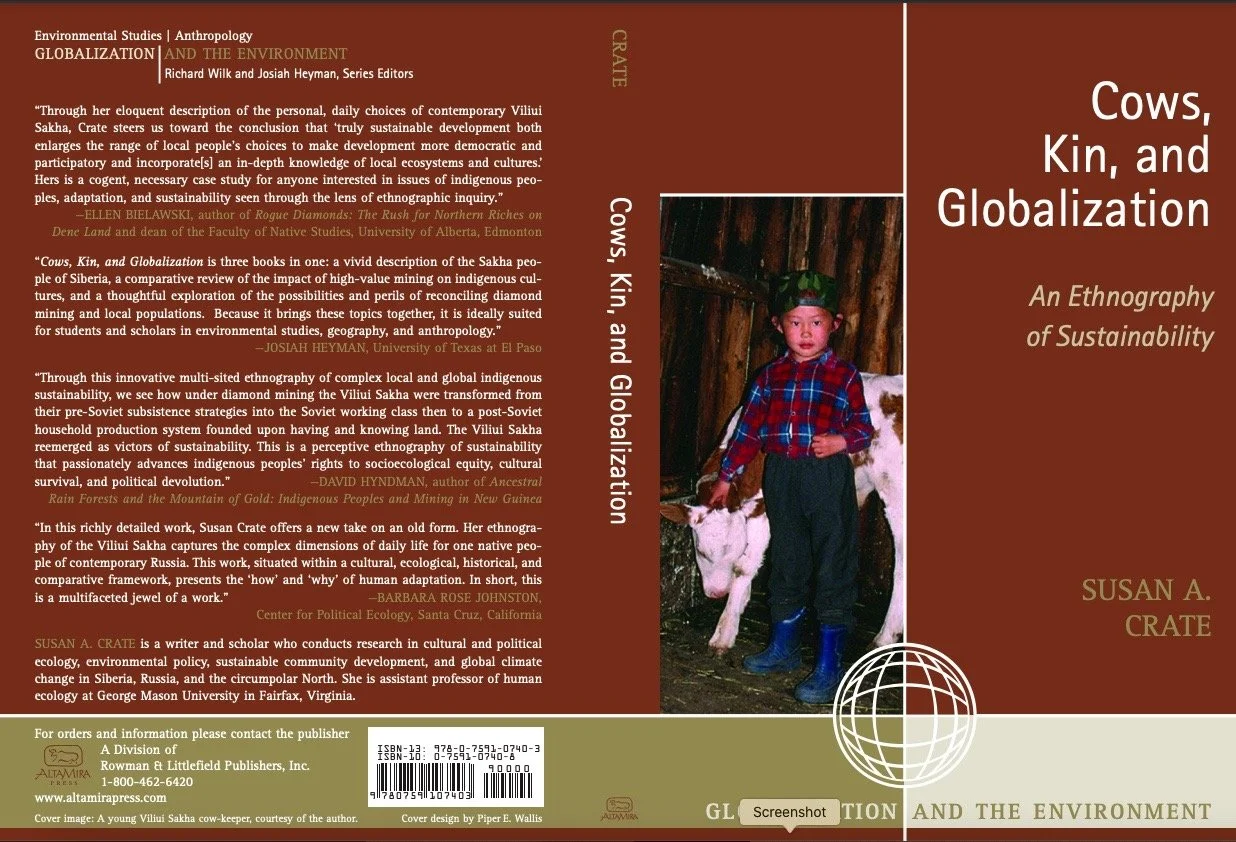-

ONCE UPON THE PERMAFROST KNOWING CULTURE AND CLIMATE CHANGE IN SIBERIA
Once Upon the Permafrost is a longitudinal climate ethnography about “knowing” a specific culture and the ecosystem that culture physically and spiritually depends on in the twenty-first-century context of climate change. Through careful integration of contemporary narratives, on-site observations, and document analysis, Crate argues that local understandings of change and the vernacular knowledge systems they are founded on provide critical information for interdisciplinary collaboration and effective policy prescriptions. Furthermore, she makes her message relevant to a wider audience by clarifying linkages to the global permafrost system found in her comparative research in Mongolia, Arctic Canada, Kiribati, Peru, and Chesapeake Bay, Virginia. This reveals how permafrost provides one of the main structural foundations for Arctic ecosystems, which, in turn, work with the planet’s other ecosystems to maintain planetary balance. Metaphorically speaking, we all live on permafrost.
Link to book site here
-

Anthropology and Climate Change: From Actions to Transformations
with Mark Nuttall. The first edition of Anthropology and Climate Change (2009) pioneered the study of climate change through the lens of anthropology, covering the relation between human cultures and the environment from prehistoric times to the present. This second, heavily revised edition brings the material on this rapidly changing field completely up to date, with major scholars from around the world mapping out trajectories of research and issuing specific calls for action. The new edition introduces new “foundational” chapters—laying out what anthropologists know about climate change today, new theoretical and practical perspectives, insights gleaned from sociology, and international efforts to study and curb climate change—making the volume a perfect introductory textbook; presents a series of case studies—both new case studies and old ones updated and viewed with fresh eyes—with the specific purpose of assessing climate trends; provides a close look at how climate change is affecting livelihoods, especially in the context of economic globalization and the migration of youth from rural to urban areas; expands coverage to England, the Amazon, the Marshall Islands, Tanzania, and Ethiopia; re-examines the conclusions and recommendations of the first volume, refining our knowledge of what we do and do not know about climate change and what we can do to adapt.
Link to publisher here
-

Anthropology and Climate Change From Encounters to Actions
with Mark Nuttall. The first book to comprehensively assess anthropology’s engagement with climate change, this pioneering volume both maps out exciting trajectories for research and issues a call to action. Chapters in part one are systematic research reviews, covering the relationship between culture and climate from prehistoric times to the present; changing anthropological discourse on climate and environment; the diversity of environmental and sociocultural changes currently occurring around the globe; and the unique methodological and epistemological tools anthropologists bring to bear on climate research. Part two includes a series of case studies that highlights leading-edge research—including some unexpected and provocative findings. Part three challenges scholars to be proactive on the front lines of climate change, providing instruction on how to work in with research communities, with innovative forms of communication, in higher education, in policy environments, as individuals, and in other critical arenas. Linking sophisticated knowledge to effective actions, Anthropology and Climate Change is essential for students and scholars in anthropology and environmental studies.
Link to publisher here
This is my first monograph, based upon my 1999-2000 dissertation research with additionally analysis and understandings integrated.
